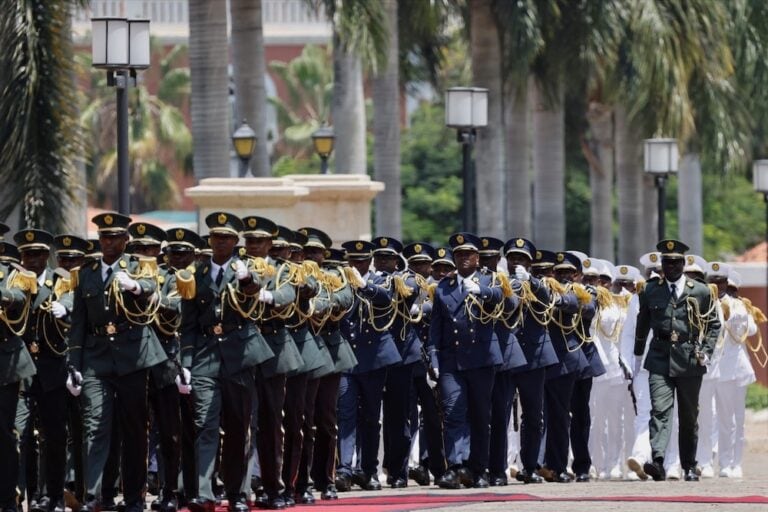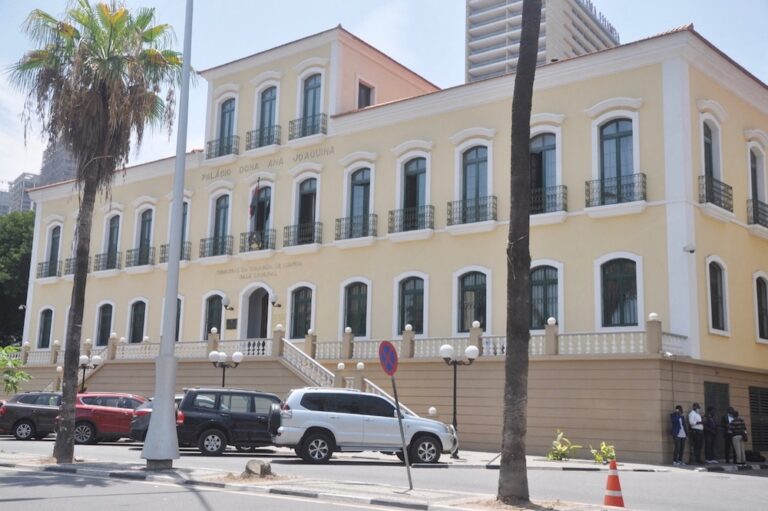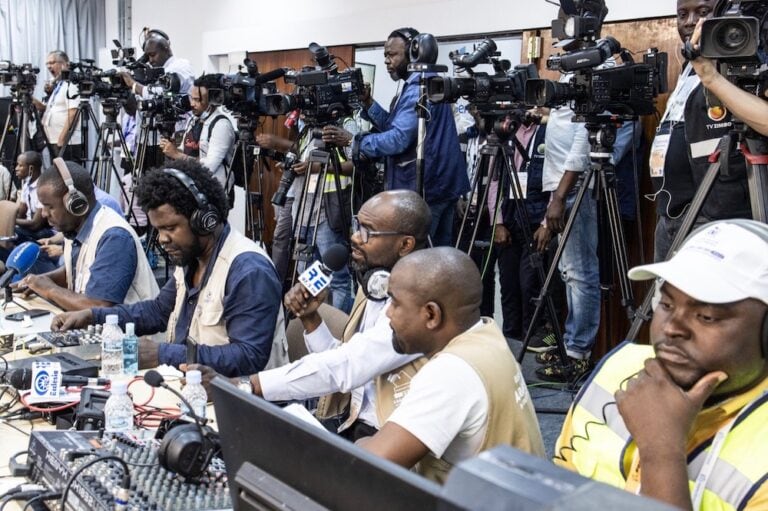(RSF/IFEX) – The following is a 10 August 1999 RSF press release: **Updates IFEX alerts of 10 August, 19 July, 15 July, 9 July, 7 July, 10 June, 8 June, 30 April, 22 April, 19 April, 24 February and 21 January 1999** Paris, 10 August 1999 For immediate distribution Angola – Government attempts to muzzle […]
(RSF/IFEX) – The following is a 10 August 1999 RSF press release:
**Updates IFEX alerts of 10 August, 19 July, 15 July, 9 July, 7 July, 10
June, 8 June, 30 April, 22 April, 19 April, 24 February and 21 January
1999**
Paris, 10 August 1999
For immediate distribution
Angola – Government attempts to muzzle independent press
On 10 August, police detained three journalists at the headquarters of the
private Catholic radio station Radio Ecclesia: the station’s director,
Father Antonio Jaka, the information director, Paulo Julião, and the
editor-in-chief, Emmanuel Mata. The radio station had a short time earlier
broadcast the second half of a BBC interview with Jonas Savimbi, the
president of UNITA. This was the second time that the station’s management
was detained in under twenty-four hours: Father Antonio Jaka, Paulo Julião
and Laurinda Tavares had been detained in the evening of the 9th and
interrogated for more than five hours by the police, after having broadcast
the first half of the interview with the president of UNITA. Materials were
also seized by the police officers. Reporters sans frontières protests the
detention of members of Radio Ecclesia’s managing staff and the seizure of
materials. These acts are part of the authorities’ deliberate policy of
controlling all information concerning the civil war and to impose a news
blackout on UNITA’s activities.
Already in January 1999, the Ministry of Communications had issued a written
order to state media, asking them to “no longer make mention of facts
concerning the war.” The independent newspapers which continued to publish
information on the conflict were accused by the government of “playing the
enemy’s game.” Close to ten journalists were assaulted, threatened or
detained after having circulated information on the conflict or giving
interviews with UNITA leaders. In January, authorities forbid the FM radio
stations Radio Morena and Radio Ecclesia from broadcasting interviews with
UNITA representatives. In April, a Voice of America journalist, Josefa
Lamberga, was assaulted by soldiers. William Tonet, the director of the
independent weekly Folha 8, was accused of “insulting the armed forces and
incitement to desertion.” During the month of May, Lara Pawson, a
correspondent of the Reuters press agency and the BBC, was assaulted by
several individuals in Luanda. They threatened her with repurcussions should
her reports become any more critical of the government. On 14 May, two
individuals who introduced themselves as special forces agents searched the
residence of Herculano Coroado Bumba, a correspondent of the Portuguese
radio station TSF. The journalist had been receiving threatening telephone
calls linked to the content of his reports in the days leading up to this
incident. On the night of 17 May, police officers detained Machado Irmão, a
freelance journalist. The police officers first charged him with commiting a
road infraction before accusing him of “playing the enemy’s game” when they
found out he was a journalist. He was then taken to a police station where
he was beaten and received death threats.
These attacks must be examined in the context of the threats uttered by
Minister of Information Pedro Hendrik Vaal Neto. During a press conference
in early June, the minister threatened to resort to “violence against
independent media.” Independent journalists, who were described as “bad
nationalists” by the minister, were accused of “inventing incidents with the
government which they convey to international press freedom and human rights
organisations.” Finally, the Psychological Action Cabinet (Gapi), which is
closely aligned to the presidency, has increased its pressure on public
media since the beginning of the year. A vestige of the colonial era, the
Gapi designs the current policy which seeks to eliminate all references to
UNITA and the civil war in the media.
Reporters sans frontières is concerned by the deteriorating press freedom
situation in Angola since the beginnning of this year. The conflict between
the government and UNITA only serves as an excuse to muzzle the independent
press. The organisation recalls that Angola has ratified the International
Covenant on Civil and Political Rights, Article 19 of which guarantees free
expression.
Reporters sans frontières is urging Angolan authorities to:
– unconditionally release the three Radio Ecclesia journalists and allow the
radio station to resume regular broadcasts of its programmes, without
censoring the content of its broadcasts,
– return the seized materials to Radio Ecclesia,
– launch investigations to identify and punish those responsible for attacks
against Angolan and foreign journalists,
– guarantee the security of Angolan journalists and foreign correspondents.


